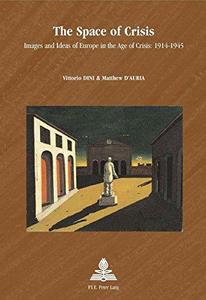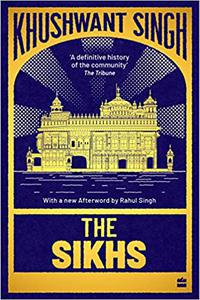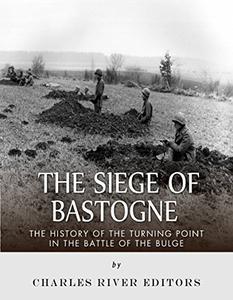
 |
 Luce López-Baralt, "The Sufi trobar clus and Spanish mysticism: A shared symbolism" English | 2000 | pages: 133 | ISBN: 9694162963 | PDF | 25,5 mb Text: English (translation)  The Step-By-Step Guide To Crochet Stitches: 2 Books In 1 - The First Notions For Beginners With Easy To Make Illustrations And Creations + 25 Projects For Intermediate Crochet Lovers. by Rachel Mullins English | 2021 | ISBN: N/A | ASIN: B098RC28RZ | 270 pages | PDF | 19 Mb Do you have a creative desire that you want to satisfy?  The Status of Legal Ethics By Pawel Skuczynski 2013 | 279 Pages | ISBN: 3631641338 | PDF | 2 MB The basic aim of the study is to describe the ambiguity of the term legal ethics in the context of different traditions and conceptions. The three most important traditions of legal ethics are: the French, with the categories of virtue and independence, the American, with the ideas of loyalty and professional duties, and the German, with professional roles and obedience. On that base, a theory of critical legal ethics is developed. It claims that the subject of legal ethics consists of three planes - deontological, social and moral. Further it is examined, whether chosen legal-philosophical conceptions contain any legal ethics conceptions and what could be the interdisciplinary research program of legal ethics.  The Space of Crisis: Images and Ideas of Europe in the Age of Crisis: 1914-1945 (Europe plurielle/Multiple Europes) By Vittorio Dini (editor), Matthew D'Auria (editor) 2013 | 225 Pages | ISBN: 2875740695 | PDF | 7 MB Focusing on European cultural and intellectual history in first half of the twentieth century, The Space of Crisis investigates how notions of crisis and changing perceptions of space influenced the way Europeans imagined themselves, their past and their future. The book is an attempt to reassess some of the main assumptions of historians and political theorists about the way intellectuals, artists, legal theorists and historians interpreted Europe's crisis during the 1920s and 1930s. By so doing, it investigates the intellectual foundations of the ensuing federalist and Europeanist movements, highlighting the importance of the writings of those years in understanding today's Europe and its current predicaments.  The Skinny Slow Cooker Summer Recipe Book: Fresh & Seasonal Summer Recipes For Your Slow Cooker. All Under 300, 400 And 500 Calories. by CookNation English | March 20, 2014 | ISBN: 1909855383 | 104 pages | EPUB | 0.80 Mb #1 Amazon Best Selling Author  The Skinny 5:2 Diet Curry Recipe Book: Spice Up Your Fast Days With Simple Low Calorie Curries, Snacks, Soups, Salads & Sides From Around The World Under 200, 300 & 400 Calories by CookNation English | January 30, 2014 | ISBN: 1909855278 | 155 pages | EPUB | 0.92 Mb #1 Amazon Best Selling Author  The Skinny 5:2 Diet Chicken Dishes Recipe Book: Delicious Low Calorie Chicken Dishes Under 300, 400 And 500 Calories by CookNation English | December 23, 2013 | ISBN: 1909855219 | 141 pages | EPUB | 0.56 Mb #1 Best Selling Amazon Author  Khushwant Singh, "The Sikhs" English | 2020 | ISBN: 935302689X, 8172236573 | 328 pages | EPUB / PDF | 0.87 MB In this classic, Khushwant Singh presents a concise history of the followers of one of the world's youngest religions.  The Siege of Bastogne: The History of the Turning Point in the Battle of the Bulge by Charles River Editors English | August 27, 2015 | ISBN: 1517070147 | 75 pages | EPUB | 1.74 Mb *Includes pictures *Includes accounts of the fighting written by generals and soldiers on both sides *Includes online resources and a bibliography for further reading *Includes a table of contents "They've got us surrounded - the poor bastards." - American army medic in Bastogne, December 20th, 1944 After the successful amphibious invasion on D-Day in June 1944, the Allies began racing east toward Germany and liberating France along the way. The Allies had landed along a 50 mile stretch of French coast, and despite suffering 8,000 casualties on D-Day, over 100,000 still began the march across the western portion of the continent. By the end of August 1944, the German Army in France was shattered, with 200,000 killed or wounded and a further 200,000 captured. However, Adolf Hitler reacted to the news of invasion with glee, figuring it would give the Germans a chance to destroy the Allied armies that had water to their backs. As he put it, "The news couldn't be better. We have them where we can destroy them." While that sounds delusional in retrospect, it was Hitler's belief that by splitting the Allied march across Europe in their drive toward Germany, he could cause the collapse of the enemy armies and cut off their supply lines. Part of Hitler's confidence came as a result of underestimating American resolve, but with the Soviets racing toward Berlin from the east, this final offensive would truly be the last gasp of the German war machine, and the month long campaign was fought over a large area of the Ardennes Forest, through France, Belgium and parts of Luxembourg. From an Allied point of view, the operations were commonly referred to as the Ardennes Offensive, while the German code phrase for the operation was Unternehmen Wacht am Rhein ("Operation Watch on the Rhine"), with the initial breakout going under the name of "Operation Mist." Today, Americans know it best as the Battle of the Bulge. Bastogne would become a legendary linchpin in the defense against the Ardennes Offensive, in part for its strategic importance but also because of the almost superhuman effort made to protect it. Seven important roads converged with the town of Bastogne, and the Germans, on their way to Antwerp, recognized its importance as a hub, but with the weather obscuring the military map and intelligence at an unusually low rate of abundance or reliability, no Americans on the ground, from private to general, knew precisely what was about to happen, or in what way it would manifest itself. Three officers, Colonel S.L.A. Marshall, Captain John G. Westover and Lieutenant A. Joseph Webber, collaborated to put it quite succinctly in the Washington Infantry Journal when they described Bastogne as "a series of small, dramatic military actions related more by circumstances beyond the control of the defensive forces involved than by the design of a single commander..." In an astonishing feat of planning, logistics and discipline, Patton's army redirected 133,000 vehicles, 62,000 tons of supplies, and the vehicles and men covered a combined distance of 1.5 million miles. To his superiors' amazement, Patton was poised to reach Bastogne and attack the Germans on December 22, and on December 21, he told Bradley, "Brad, this time the Kraut's stuck his head in the meat grinder, and I've got hold of the handle." Of course, for Patton's Third Army to relieve the siege, the men had to hold out a few days, which they were able to do because supplies were parachuted in and the Germans eschewed frontal assaults. In the end, Patton's army reached Bastogne in 4 days and lifted the siege, even he used superlatives to describe the action at Bastogne, calling it "the most brilliant operation we have thus far performed, and it is in my opinion the outstanding achievement of the war. This is my biggest battle."  Robyn Gobin PhD, "The Self Care Prescription: Powerful Solutions to Manage Stress, Reduce Anxiety & Increase Wellbeing" English | 2019 | pages: 154 | ISBN: 164152393X | EPUB | 2,6 mb Improve your well-being every day with solutions-based, self-care strategies that work. |